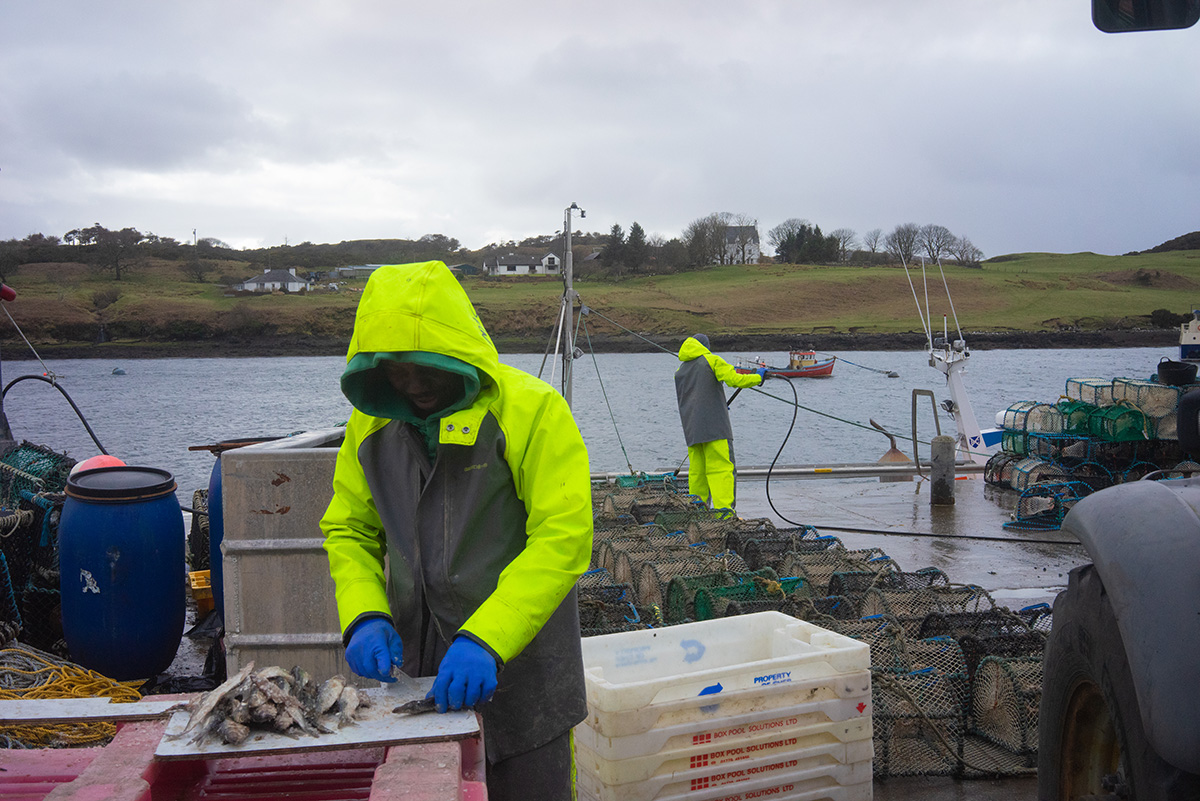How migrant fishermen followed their catch from Ghana to Denmark—and back
Ghanaian fishermen who migrated to Europe because of overfishing along Ghana’s coastline have found themselves exploited in the European fishing industry. The companies that depend on their labour do little to ensure decent working conditions, a situation worsened by weak regulations and the rise of populist anti-migrant rhetoric in the global north. Interestingly, however, circumstances seem to be improving on the Ghanaian side: at least one crew has returned home, leaving Western Europe to contend with its own labour shortages in the fishing sector.
Fisherman Anthony Appiah* often felt he was risking his life when sent out in storms off the coast of Denmark, with waves pounding against the hull of the Dutch-owned vessel and ropes snapping across the deck like whips. A single mistake could mean being dragged overboard. Videos shared by Appiah show men straining to haul heavy baskets of crab as the sea churns perilously close. “I was always afraid something would happen to us,” he says.
His colleague, James Ewuah, was asleep on an Irish ship when it struck a rock and began to sink. “The captain told us to go back for our passports, but the ladder was broken. One of my colleagues nearly drowned when the cabin flooded. We barely survived until a helicopter rescued us,” James recalls. A third Ghanaian seafarer, Stephen Boateng*, fell gravely ill while working on a UK-flagged vessel. “I was coughing up blood and couldn’t breathe. I thought I was going to die,” he says in an interview. Instead of receiving medical care, however, the skipper delayed his hospital visit, then deported Boateng back to Ghana and blacklisted him from future work on UK-flagged ships.
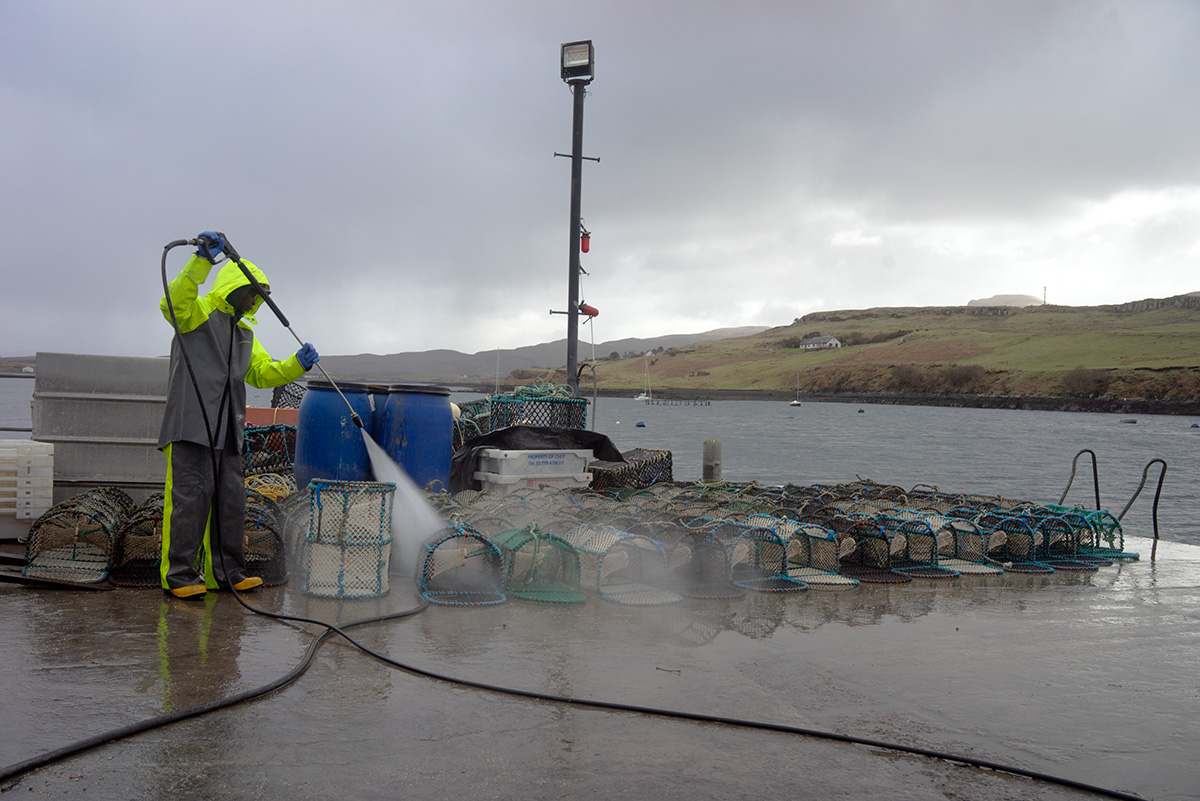
Ice cold waters
Two of the three men recount paying Ghana-based recruitment companies for work on European and UK ships, only to end up with far less money than promised and alarmingly harsh working conditions. They describe working seven days a week, often 12 to 16 hours a day, in icy waters, for wages that fell far short of the assurances they had been given—a situation they say is all too common. Ship owners routinely deducted expenses, citing “insurance” or “food,” which was often expired or inadequate. On one occasion, the crew was left with a single rotting chicken to share, and eventually, no drinking water. A survey by the University of Nottingham found that a third of fishermen on UK vessels worked 20-hour days, while over a third reported experiencing physical violence on board. These extreme working hours are also corroborated by Global Fishing Watch.
“The workers can buy some necessities in a harbour shop”
Many European ships fly under the British flag because UK laws allow companies to employ workers on so-called transit visas, effectively reducing them to little more than illegal labourers. Chris Williams, fisheries section coordinator at the International Transport Workers’ Federation (ITF), explains: “The Code 7 Seafarers' stamp (commonly referred to as a transit visa) is only valid for the vessel with which the contract was signed. Workers are allowed to walk around in the port and buy some necessities in a harbour shop, but otherwise they are only permitted to leave the ship during the contract period with the permission of the vessel owners. On shore, they are considered illegal and can be sent back.” Williams confirms that his organisation receives numerous reports of injuries and exhaustion among migrant workers on fishing vessels. “They are common.”
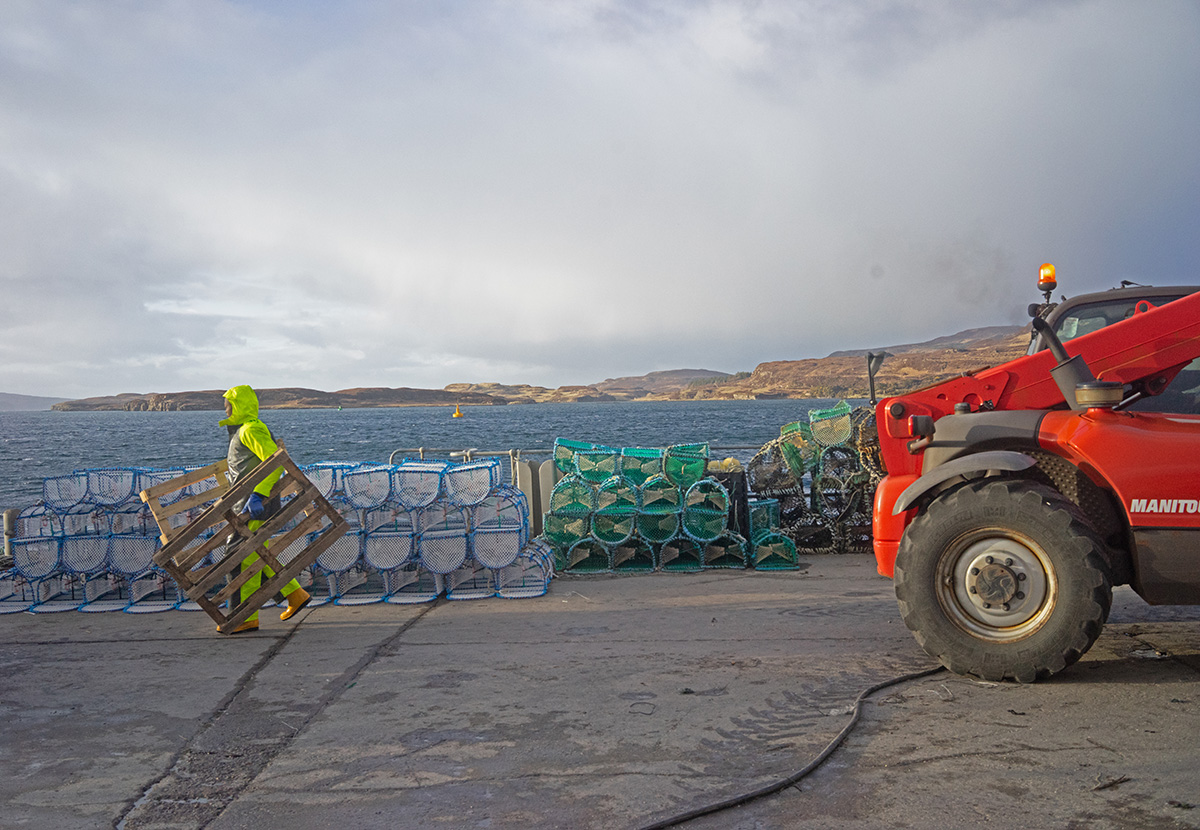
Debt bondage
A company can apply for an enhanced ‘skilled worker’ visa for staff needed for fishing within the 12-mile coastal zone, but the process is cumbersome. Beyond having to prove (1) that local staff cannot be recruited, there are numerous additional procedures involved. While the skilled worker visa provides important benefits, giving workers the same labour protections as British citizens, including the minimum wage, adequate rest hours, and occupational safety measures, fishing companies may see little incentive to navigate such a demanding process. It is often far simpler to pursue the alternative: committing to fish only outside the 12-mile zone covered by the skilled worker visa. Once a company makes that commitment, the complex procedures and requirements no longer apply, and workers can be employed on a transit visa.
The International Transport Workers’ Federation estimates that around 2,000 migrant workers in the UK fleet are recruited through this transit visa system, formally known as the Seafarers Transit Stamp. Many of these workers are African, particularly Ghanaians. They play a crucial role in the otherwise understaffed UK and European fishing fleet, employed as deckhands on larger vessels, especially in Northern Ireland and Scotland.
“Migrant earned £900 a month to pay off £9000 on an eleven-month contract”
The exploitation is enabled by numerous legal loopholes within both the UK and European fishing industries. The transit visa system, for instance, depends on recruitment agencies operating in migrant-sending countries such as Ghana. Contracts frequently pass through multiple layers of these agencies, obscuring accountability. “When they complain, they are reminded of the debt they owe to the agency, or threatened with deportation,” says Williams. “The system allows this to happen in plain sight.”
He explains that the debt arises from pressure by some agencies on fishing families to hand over deposits, take out loans, or put their homes up as collateral to cover “costs.” Williams says he has handled “cases where a migrant earned £900 per month to pay off a debt of £9,000 on an eleven-month contract,” he explains. These debt problems almost inevitably occur when recruits, once employed in the UK and European sectors, are paid far less than they had anticipated.
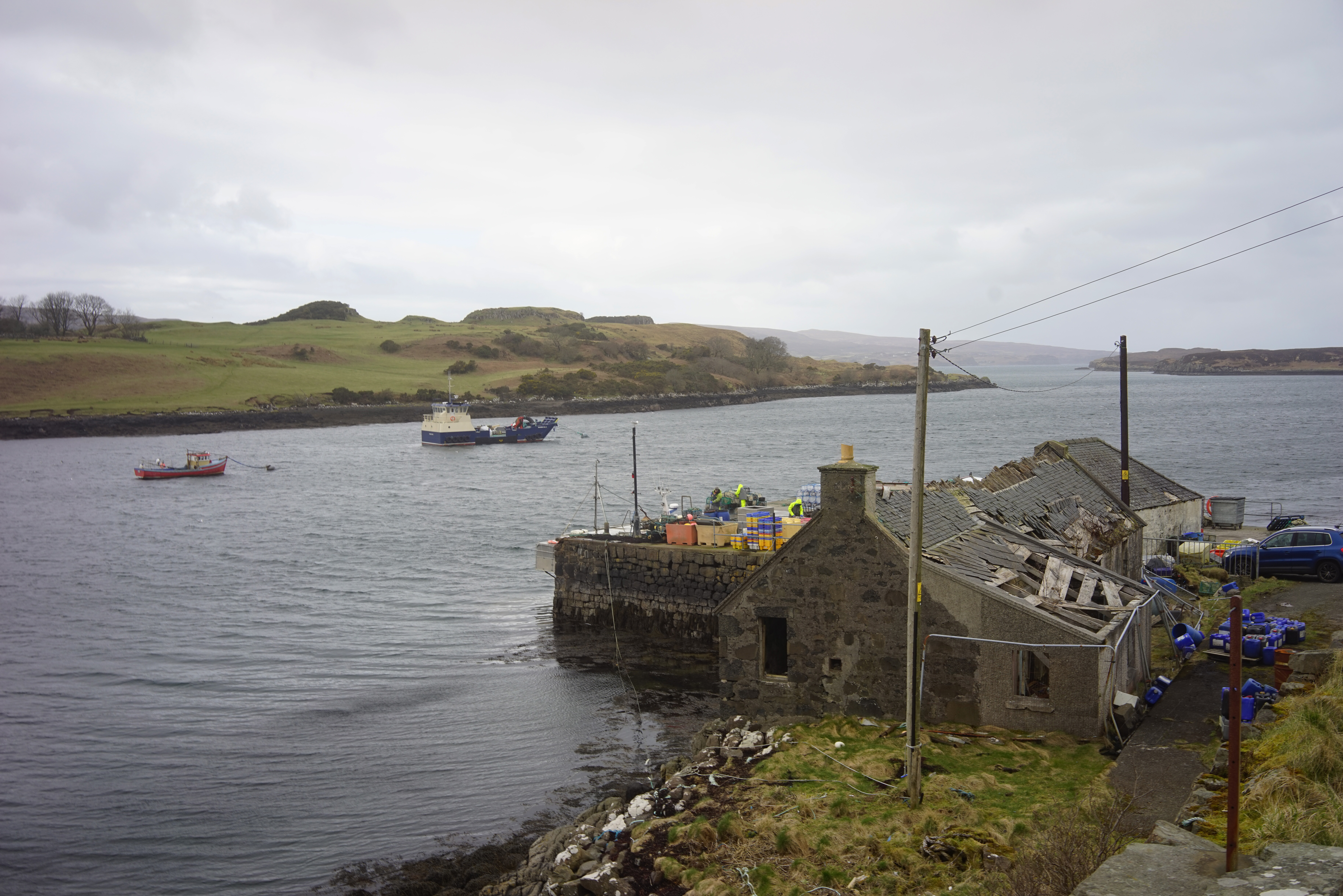
Flags of convenience
The recruitment issues are compounded by the practice among Dutch and European vessels of using British flags. Like the UK, the Netherlands and other EU countries issue proper work visas for migrant fishers only if shipowners cannot hire local—or, in the EU’s case, European—crew. Unlike the UK, however, the EU does not permit transit visas. Yet in the globally operating fishing industry, Dutch companies have found ways around these restrictions. The Netherlands-based company Ocean Fleet Seafood, headquartered in IJmuiden and where Anthony Appiah was employed, operated vessels registered under the British flag.
“It is unclear which country or authority is responsible”
It is easy for shipowners to register their vessels under the flag of whichever country offers the most lenient legal framework. The Dutch Court of Justice has sought to close this loophole with a ruling that shifts responsibility for labour law compliance from the flag state to the vessel’s home port. However, the home port status of many ships is often ambiguous. The result is a growing legal vacuum in which exploitation may flourish. The now-common practice among Dutch fishing companies of using British flags has, for example, led the Dutch Labour Inspectorate to cease inspections of fishing vessels altogether since 2020. “It is often unclear which country or authority is responsible,” a spokesperson admitted.
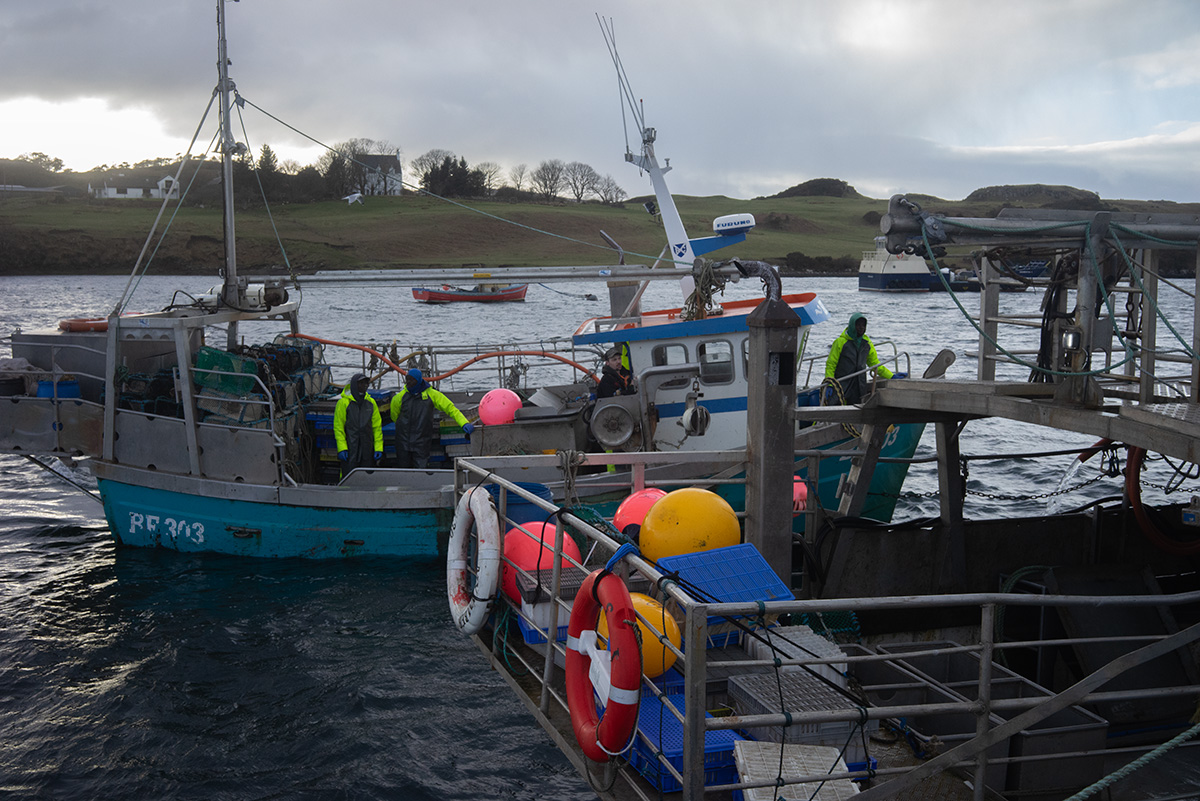
Anti-migrant rhetoric
The Scottish White Fish Producer Association (SWFPA), Europe’s largest fishing organisation, has taken notable steps in response to recent reports of exploitation and abuse of migrant workers in the Scottish fishing industry, particularly since 2022. Spokesperson Sharon Cooper says, , for instance, that the SWFPA is carefully selecting recruitment agencies in countries such as Ghana. “But we keep learning on the job,” she adds.
Regarding worker abuse on the vessels themselves, the SWFPA conducts awareness campaigns within the sector and attempts to check in with contracted migrant labourers once a month. “But sometimes they are scared to talk and only report what happened to them once they are back home. And then it is their word against the word of the employer.” The situation is further complicated by the fact that vessels from EU countries now fly UK flags and sign contracts via the SWFPA. Vague agreements with Ocean Fleet Seafood, which delivered far less than what Appiah and Boateng had been promised, were signed by a British employer whose name has been withheld for privacy, and who, when contacted, denied any involvement with the company.
The Minister noted “concerns about exploitation”
But perhaps the most problematic factor in the situation of migrant fishermen is the anti-migrant climate in the UK and Europe. While all our sources in the fishing sector—both in the UK and Europe—agree that, as in other parts of the economy, the industry is severely short-staffed due to an aging workforce and a lack of interest in fishing careers among younger local generations, rhetoric against migrants is on the rise. UK Prime Minister Keir Starmer has already used terms such as “strangers” to describe people not born in the UK (a term he later said he regretted) and has asserted that the UK has become a “one-nation experiment in open borders.”
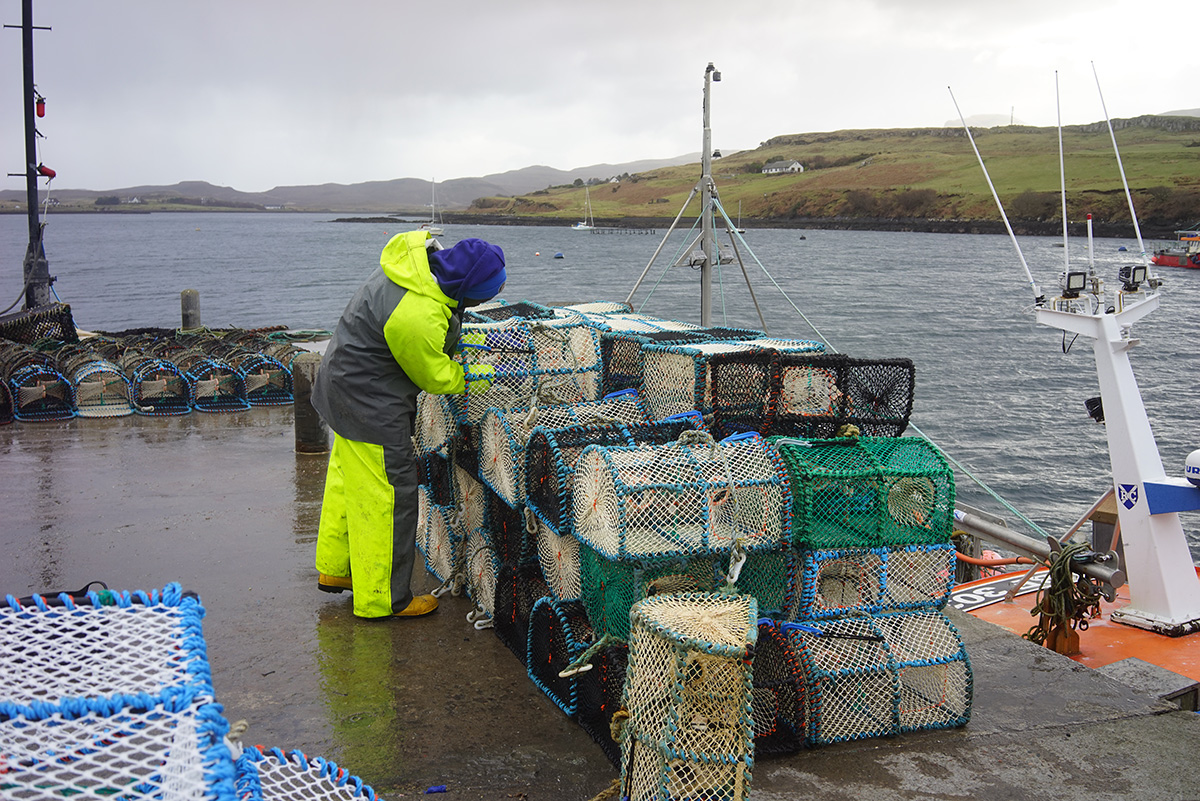
When MP Claire Hanna raised questions in the UK Parliament regarding the exploitation of migrants working on British fishing vessels under transit visas, the minister’s response, while acknowledging “concerns about exploitation in the fishing industry,” focused on the “limited evidence of the sector’s efforts to reduce” its reliance on immigration. “It is important that industry looks to the domestic workforce to fill vacancies,” he added.
Overfishing in Ghana
A key reason Ghanaian fishers, and others from West Africa, seek employment further north is the dire state of the local fishing industry. Foreign vessels, predominantly Chinese, trawl the waters, prompting complaints from communities such as Elmina, Jamestown, and Tema that their boats often return half-empty while industrial trawlers haul tons of small fish to foreign markets. Adding insult to injury, these large vessels sometimes send canoes loaded with fish to shore for sale to locals, who now pay for the very fish they had hoped to catch themselves, an illegal practice known as Saiko. A 2019 Environmental Justice Foundation (EJF) report estimated that Saiko deprives Ghana of around US$50 million in annual revenue.
Illegal hauls cost Ghana US$50 million per year
Ghanaian fishing communities and trade associations, along with the EJF, have long sought to persuade Ghana’s government to take action against both Saiko and the broader practice of trawling, which often occurs even under Ghanaian flags.
According to a 2025 Harvard report, fishing practices by Chinese industrial trawlers caused Ghana’s total catch of small pelagic fish to drop by 59% between 1993 and 2019.
“A bold act of leadership”
Meanwhile, the situation in Ghana itself is beginning to improve. In August 2025, a new Fisheries and Aquaculture law was passed, prohibiting fishing by foreign trawlers within an extended coastal zone. The legislation was welcomed as a victory by local civil society and trade organisations that had long campaigned for it. While these organisations caution that the law must be properly implemented and enforced by Ghanaian authorities before it can have a tangible impact, the Environmental Justice Foundation, in a statement published on 22 August 2025, described the new law as “a landmark moment for Ghana’s fisheries,” adding that “this bold act of leadership will help to build effective protection for Ghana’s small-scale fishers, strengthen food security, and lay the foundation for marine ecosystems to recover.”
The crew mutinied and steered the vessel back to port
Whether Ghana’s fisheries industry can offer a better prospect to those now contemplating the cold waters of Northern Europe remains to be seen. But Western fishing companies might do well to pay closer attention to the personnel they currently employ. In February this year, the entire crew of one of Ocean Fleet Seafood’s vessels, left without water and with only a single rotting chicken, mutinied and steered the ship back to port. A month later, having completed their contract, they returned to Ghana.
- For instance, by demonstrating that they posted job advertisements for the position and that either no qualified local applicants responded, or that those who did apply did not meet the required qualifications.
- Ocean Fleet Seafood declined to comment on this investigation.
*Names changed for privacy reasons
This story was funded by Journalism Fund Europe/Pascal Decroos Foundation

